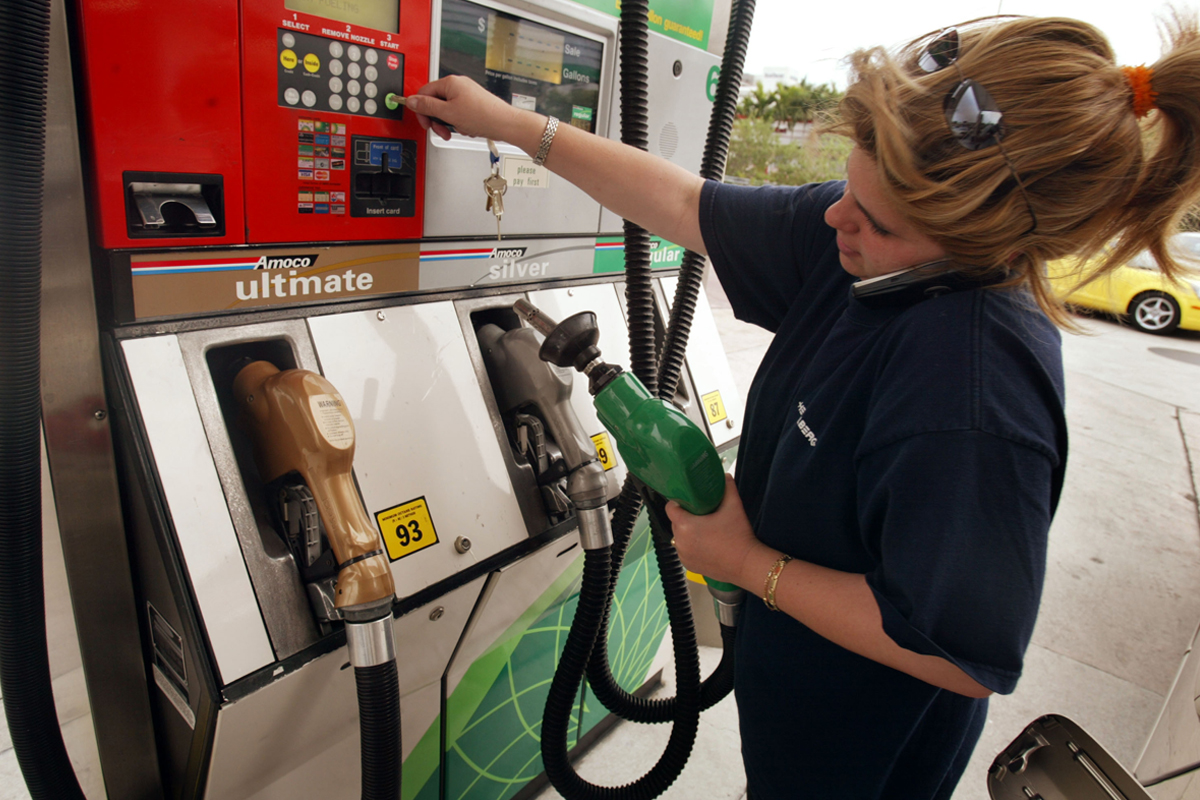Car Myth Buster! True or False?
Question: My son is convinced that putting a potato in the exhaust pipe will cause the engine to blow up when we start the car. Can you confirm that this is not true?
Yes we can! You can assure your son that the potato will just shoot out. There’s all kinds of automotive information out there that many of us accept as gospel. But it turns out that much of what we think we know isn’t true. Here are some of the most frequently heard automotive myths and their corresponding truths:
Do manual transmissions offer better fuel economy than automatics?
Not anymore. With recent advances in the technology (like the continuously variable transmission, which offers an infinite range of gear ratios), it eliminates the fuel-saving advantage of manuals, and in some cases puts automatics on top.
Does my everyday car need premium gas?
It depends. In many cases, the only difference you’ll notice is less money in your bank account. Certain vehicles—hot-running sports cars and luxury vehicles—typically DO require premium fuel, which helps prevent “pre-ignition,” a situation where the air/fuel mixture in an engine cylinder ignites before a spark plug fires. This can cause engine knock, and in some cases, lead to internal engine damage. High-octane fuels also help ensure high-performance engines realize their full power. However, the bulk of the vehicles on the road don’t run nearly as hot and aren’t susceptible to pre-ignition. They’ll do fine with regular-grade, 87 octane gas. If your owner’s manual doesn’t specifically say, “the vehicle requires premium fuel,” using higher than 87 octane is simply throwing away money.
Will I get more for my money if I fill my gas tank in the morning?
No! The thinking here is that when temperatures are cool, gasoline is denser, so you get more fuel per gallon. But, as Consumer Reports explains, gasoline is stored in underground tanks, where the temperature hardly fluctuates. So the gas coming out of the nozzle is basically always at the same density morning, noon or night.
If I use my cell phone while pumping gas, can it trigger an explosion?
No, no, no! The Federal Communications Commission investigated reports that a wireless signal could ignite fuel vapors, and concluded: “There is no documented incident where the use of a wireless phone was found to cause a fire or explosion at a gas station,” and “scientific testing, has not established a dangerous link between wireless phones and fuel vapors.”
Do dirty air filters slurp gas?
No! Older engines did suffer at the hands of a dirty air filter, but the computers on modern engines govern the air/fuel ratio so effectively that the air filter no longer is a huge part of the equation. However, a dirty air filter might negatively impact acceleration.
Can I still drive a long way after the gas gauge is on empty?
Kind of yes and kind of no. You won’t be stuck on the side of the road in the next few minutes, but the number of miles you have left depends on the vehicle you’re driving. A Ford Focus averages 39 miles after hitting “E,” and a Chevy Avalanche averages 45 miles. Check out your ride on Tank on Empty, which has a searchable database.
Should I let my engine warm up for a few minutes before driving?
No! Back in the day when TVs were black-and-white, a car might’ve needed to sit idling for a bit on a cold winter morning. No more. Start ‘er up, sit for about 30 seconds to let oil circulate through the engine and go. Today’s fuel-injected, computer-run engines are a heckuva lot snappier at the get-go. Sitting in your vehicle, idling the engine every morning is only wasting gas.
Do I need to get regular engine tuneups?
Most modern-day “engine tuneups” are just an expensive way to get your spark plugs and air filter replaced. Old cars had a lot of different mechanical components with limited lifespans working in a precarious balance that needed to be checked regularly. The concept of the traditional “tune up” has gone by the wayside. Instead, we recommend having a mechanic inspect your car thoroughly at least once a year, and during that inspection, make sure they gauge the state of your spark plugs, belts and fluids.
Is my SUV safer than my car?
Not necessarily. Many of us think we are safer in a large SUV than a mid-size sedan. The thinking is that bigger cars have a more stable handling and offer more protection since there is more “cushion” surrounding you. But the truth is, bigger doesn’t necessarily mean safer. In crash tests, many cars hold up better than some midsize SUVs. To check out ratings on your vehicle or one you’re considering buying, look at the National Highway Traffic Safety Administration’s (NHTSA) web site.
When I buy a new car, do I have to take it back to the dealer for maintenance?
No! When you buy a new car, it usually comes with a bumper-to-bumper warranty, which covers components that fail. This includes sensors, electrical components and the air conditioning. But those warranties don’t cover regular maintenance, such as oil changes or tire rotations. You can bring your car to Hong Kong Auto Service or another independent mechanic for the routine work, or even do it yourself, without affecting the warranty. You simply need to maintain a record that proves all of the maintenance was performed.
Do I need to purchase gas from a brand name gas station to guarantee top-quality fuel?
No! Major players such as Shell, Mobil and BP don’t enjoy a monopoly on good gas. That’s just fuel fiction. The lowdown: Independent filling stations buy petroleum from name-brand oil companies, so their fuel doesn’t differ from that sold by their more expensive competitors. The biggies might put engine-cleaning additives in their gas, but experts say their absence won’t impact most cars.
Want some additional reading? Check out: “Guard against the guzzle: Gas-saving guidelines” and “Lead foot? Pack rat? 13 ways to save gas by changing your driving habits.”

